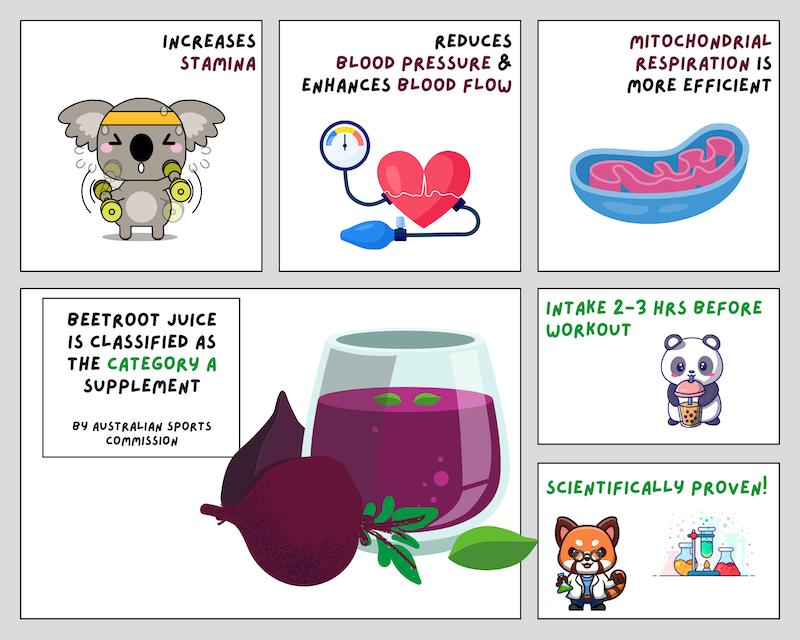Around half a year ago, I started supplementing beetroot juice. I’m in my 30s and no longer have stamina for extended workouts, and my body doesn’t regenerate at the same rate as in my 20s. I was looking for a solution. I went with my belief that beetroot juice might be a supplement that I’m looking for. The idea wasn’t supported by checking scientific research, and I didn’t watch any advertisements for beetroot juice, so I wasn’t influenced by external persuasion. I heard about the properties of beetroot juice many years ago when I was a teenager. So, I started experimenting with beetroot juice almost 15 years later from the moment when I’d learned about it.
I started drinking one big glass of beetroot juice a few hours before a workout, every second day of the week, or during a day when I went for training. I didn’t feel a difference in the initial phase which had lasted approximately two months. After this period, something suddenly kicked off, and I realized that my core training time had increased. I have drunk beetroot juice since and now have a clear comparison – I have an additional 15 minutes for each hour of complex breakdance workouts before I’m tired.
The discovery amazed me. I decided to check the scientific literature, and guess what? The research shows that beetroot juice is a fundamental supplement, not a scam, used by athletes worldwide. Beetroot juice has given A class in the supplements classification by Australian Sports Commission, along with beta-alanine or creatinine [1]. Beetroot juice increases Nitric Oxide levels, which serves multiple functions related to increased blood flow, gas exchange, mitochondrial biogenesis and efficiency, and strengthening of muscle contraction [2]. Here’s a summary of the positive effects related to beetroot juice supplementation (A – acute supplementation, C – chronic supplementation):
- reduces blood pressure (A/C)
- increased blood flow (A/C)
- increased efficiency of mitochondrial respiration (C)
- increased mitochondrial population (C)
- reduces the oxygen cost of exercise (A/C)
- long-lasting reduced oxygen consumption at suboptimal exercise (C)
- improves muscle contraction and relaxation process (A/C)
- increases the exercise capacity (A/C)
- increases performance in cycling and in swimming (A/C)
- prolonged time-to-exhaustion (A/C)
According to studies the optimal time for beetroot juice intake is 2-3 hours before exercise. But for acute pre-exercise supplementation, people need beetroot juice concentrates. Studies show that chronic supplementation occurs when someone uses beetroot juice for at least few weeks.
If someone is not a fan of beetroot, then might consider different sources of Nitric Oxide. The list is long, and it is divided by the nitrate content [2]:
- very high: beetroot and beetroot juice, celery, lettuce, rocket, spinach,
- high: Chinese cabbage, celeriac, endive, leek, parsley, kohlrabi
- moderate: cabbage, dill, turnips, carrot juice
- low: broccoli, carrot, cauliflower, cucumber, pumpkin, V8 vegetable juice.
You too might consider supplementing with beetroot juice! But first, you should consult medical professional, and next – read publications about this supplement. You could start from the bibliography attached to the article.

Bibliography
[1] https://www.ais.gov.au/nutrition/supplements/group_a#dietary_nitrate_beetroot_juice
[2] https://www.ncbi.nlm.nih.gov/pmc/articles/PMC5295087/#B9-nutrients-09-00043
